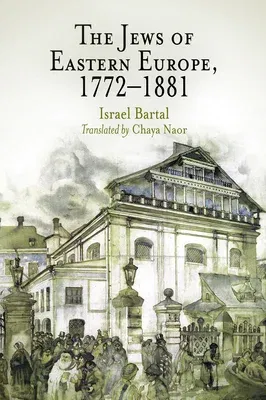Israel Bartal
(Author)The Jews of Eastern Europe, 1772-1881Paperback, 16 August 2006

Qty
1
Turbo
Ships in 2 - 3 days
Only 2 left
Free Delivery
Cash on Delivery
15 Days
Free Returns
Secure Checkout

Part of Series
Jewish Culture and Contexts
Print Length
216 pages
Language
English
Publisher
University of Pennsylvania Press
Date Published
16 Aug 2006
ISBN-10
0812219074
ISBN-13
9780812219074
Description
Product Details
Author:
Book Format:
Paperback
Country of Origin:
US
Date Published:
16 August 2006
Dimensions:
22.61 x
15.24 x
1.52 cm
ISBN-10:
0812219074
ISBN-13:
9780812219074
Language:
English
Location:
Philadelphia
Pages:
216
Publisher:
Series:
Weight:
317.51 gm